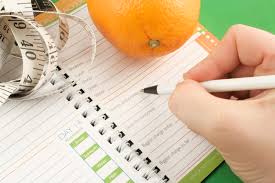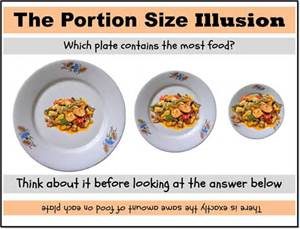Why keeping a food journal helps my clients lose twice as much weight
Adapted from article by Cynthia Saas RD, MPH
Keeping an inclusive and accurate food journal is probably the biggest challenge my clients face and I get it! It’s a pain in the butt! It is also the number one most important thing you will do if you truly want to achieve and maintain your all of your weight and wellness goals for life.

There are two ‘right’ ways to complete your daily food journal.
Option One: Plan out your day in advance. You will prepare for and log everything you plan to eat for the day before it even begins. This method is best for people that have chaotic schedules and limited time to make healthy food choices on the fly. In fact, it forces you to be armed are ready so you can overcome the common challenges that may have thwarted your efforts in the past. Things like what to choose at lunch when you know you are meeting a colleague at a restaurant. What to eat at 2 PM when you are starved and didn’t bring a snack with you. Or, how you will navigate dinner when you aren’t sure what you have in the house for yourself much less your family! This method helps you avoid last minute scrambling and poor food choices.

Option Two: Measure, weigh and record your food intake as you go. This method works best for those who want more flexibility and can make healthy decisions on the spot as long as they know how each food will fit into their daily goals. There should still be some level of planning (like having a stocked kitchen) so that you have easy access to healthy foods that you enjoy. It is equally as important to limit access to trigger foods that have thrown you off track in the past. It’s not that you can’t ever have icecream again – but there is no need to keep a stockpile of it in your house if you know it is something you have a hard time resisting. Instead, just plan for it and then go out for your favorite food vice.
The food journal option that absolutely does not work logging everything at the end of the day. If you have ever tried to sit down at night and ACCURATELY recall everything you ate and drank for the day , chances are you’d forget a thing or two (or five), and you’d be way off on the total amounts of what you do remember. On average, people underestimate how much they eat by at least 30%. Studies show this is even more skewed when people believe what they are eating is healthy; then they underestimate at a rate closer to 50%. As a nation, we have lost the meaning of what an actual ‘portion size’ is. Unless you consciously set out to measure, weigh, and think through everything you put in your mouth, it’s easy to underestimate how many cups of cereal truly went in that bowl. And, did you remember to add in the free sample at the market, a few nibbles while cooking, or a taste from your partner’s plate? Trouble is, those unacknowledged extras can add up quick, and get in the way of weight loss and health results. What’s more, you may be engaging in unhealthy patterns you’re not even remotely aware of. The solution: start keeping a diary.
A Kaiser Permanente study involving more than 1,600 people found that those who kept a daily food journal lost twice as much weight over six months (18 pounds versus 9) compared to those who weren’t regular recorders. Another recent study, published in the Journal of the Academy of Nutrition and Dietetics, found that overweight and obese women in diet only or diet plus exercise weight loss groups all lost weight. But those who kept food journals shed six extra pounds.
 As your nutrition accountability partner, I am promise I am vested in your success. I don’t make you keep a food journal because I am mean, judgemental and like to make you do tedious tasks. I do it so we both can learn, understand and tackle all the reasons you have struggled in the past. I want you to fully understand how to fuel your body in a positive way that feels great and NOT like a diet. These are the things we will learn if you keep an honest, concise and consistent record of everything you eat:
As your nutrition accountability partner, I am promise I am vested in your success. I don’t make you keep a food journal because I am mean, judgemental and like to make you do tedious tasks. I do it so we both can learn, understand and tackle all the reasons you have struggled in the past. I want you to fully understand how to fuel your body in a positive way that feels great and NOT like a diet. These are the things we will learn if you keep an honest, concise and consistent record of everything you eat:
Why do you eat when you’re not hungry?
I ask my clients to record not just what and how much they eat, but also how they feel emotionally at mealtimes, as well as their hunger and fullness ratings before and after eating. Many realize they’re triggered to eat not by physical hunger, but because they’re bored, sad, angry, or worried. Others notice that they eat to pass time when procrastinating, or out of habit, such as always having a snack while watching TV. This kind of insight is invaluable, because triggers and patterns are often unconscious, and you can’t change something you don’t even realize you’re doing. Keeping a journal changes that, because it allows you to identify the “whys” of your choices, systematically work on forming new habits, and find non-food ways to cope with emotions .
Do your dining companions affect your habits?
After starting a diary, one of my clients was shocked to learn just how much more she ate with her hubby compared to dining solo or with friends. Not only were the two “partners in crime” who enjoyed indulging in things like ice cream together, but they often split pizzas and ate similar portions, even though his needs were far greater than hers. It took making this connection for her to realize that gaining 15 pounds since they moved in together wasn’t just about getting older, and she felt empowered to make changes that led to weight loss.
How much are you really eating?
In a fascinating study, Cornell University researchers used a hidden camera to spy on patrons at an Italian restaurant. Just five minutes after the meal was over, they asked diners how much bread they had consumed. Most people ate about 30% more than they thought, and 12% of people who were seen eating bread on camera denied having any at all. The results aren’t shocking, because eating is often mindless . When you’re chewing food and distracted at the same time—whether by carrying on a conversation, checking e-mail, or watching TV—it’s easy to lose track of what or how much you downed. Recording your intake forces you to pay attention and offers a real time reality check. Even texting can help. A Duke University study of obese women who participated in a six-month weight-loss intervention found that those who tracked their intake via text lost weight, while those who didn’t gained pounds.
Recommended reading: Mindless Eating by Brian Wansink – one of the most eye opening nutrition books I have ever read!
How fast do you eat? Do you really taste your food and pay attention to fullness cues?
Journaling often triggers major light-bulb moments among my clients about just how quickly they eat. When one began tracking, he noticed that he was always the first one to finish his food when dining with others, and even alone he wolfed down sandwiches and snacks at lightning speed. As a result, he often experienced heartburn and felt unsatisfied, even when uncomfortably full. Just slowing his pace led to eating less over a longer stretch (but enjoying food more), sipping more water, ending meals without digestive upset, and, before long, tightening his belt a notch—pretty huge payoffs for one small change.
How you feel after eating certain foods?
In my opinion, one of most important insights gained from food journaling is connecting what and how you eat to how your body feels. When I ask my clients to track things like energy, mood, mental clarity, and digestive happiness in their food diaries, they’re often blown away but what the find. Recently one client realized that having a veggie-packed salad topped with quinoa, lean protein, and avocado for lunch left her feeling like a million bucks all afternoon, while heating up a frozen processed “diet” meal left her feeling sluggish, grumpy, and unmotivated. As a result, she began bringing lunches to work, eating clean in order to feel better, and losing weight despite eating more calories.
Does your perception match reality? Really?
My clients frequently make comments like, “I eat tons of fruits and vegetables” or “I don’t drink that much,” but when they begin to track, they realize just how far off their perceptions are from reality. It’s essentially human nature—we like to recall our successes and perhaps even exaggerate them. But telling yourself nutritional white lies can hold you back from reaching your goals, or even cause you to abandon them altogether. The point of a food journal isn’t to judge or police yourself, or even to grade yourself; it’s to learn about yourself, which is the first step toward adopting healthy changes that stick!
